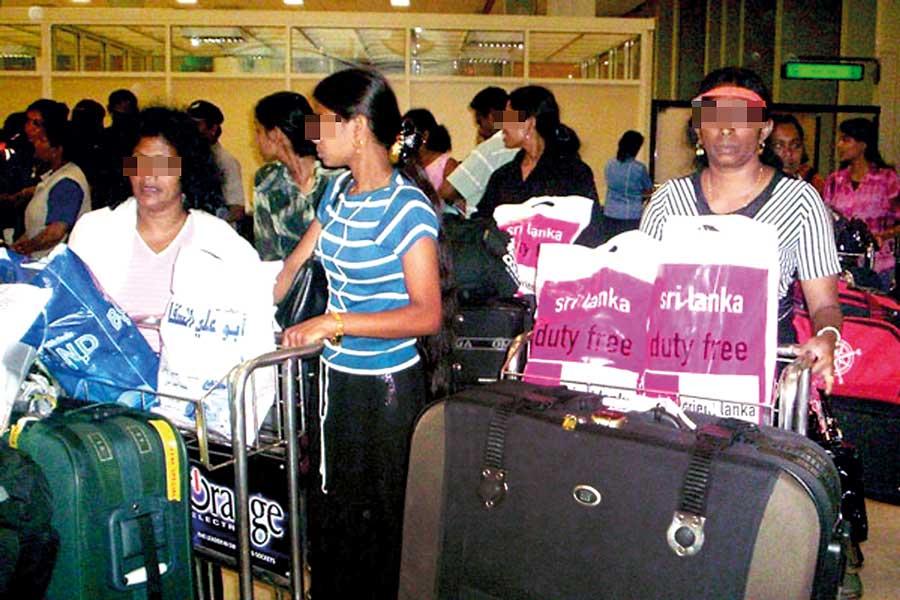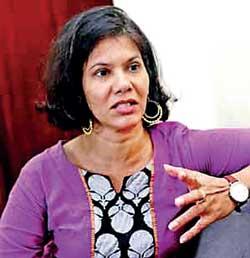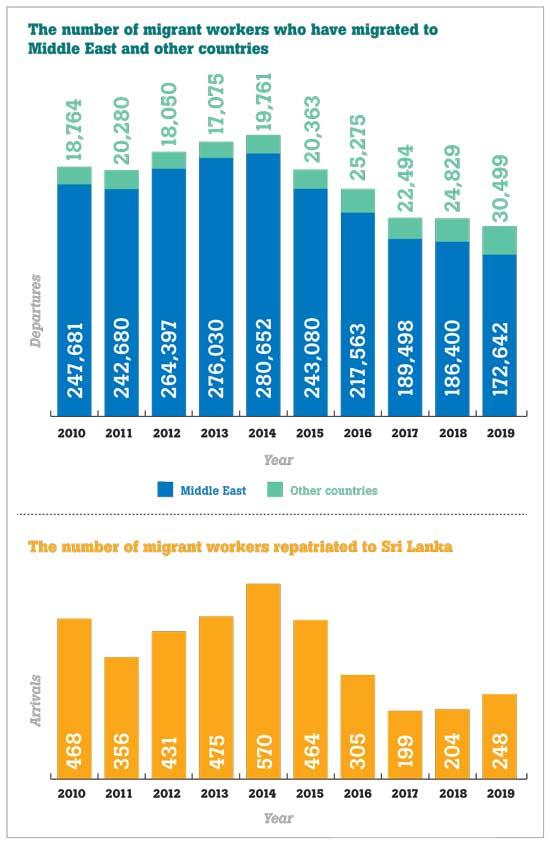Reply To:
Name - Reply Comment

Sri Lanka’s female domestic workers in the Middle East undergo multiple forms of abuse and harassment, much of which remains ignored or unknown. Migrant workers contribute immensely to the national economy by earning foreign exchange. In 2018, Sri Lanka earned over 7 billion US dollars from domestic workers, accounting for 7.9% of GDP. Despite this, migrant workers in the Middle East face a desperate plight, and their labour is akin to modern-day slavery.

The increasing number of women returning to the country has become a major concern. They face an excessive workload, are ill-treated and lack basic labour rights. Some have been physically assaulted by house employers and even their children. In this light, the question arises as why they must face for such slave-like labour conditions. If they had more have favourable working conditions to earn a decent living at home, they would not be forced to work in other countries under barbaric conditions.
Meanwhile their families at home await their return like the earth expecting a drop of water after a harsh drought. Husbands and children want their wives and mothers to return safe and happy. But they end up angry and frustrated as they see their mothers and wives return home, mentally and physically scarred. Moreover, the workers and their families have to spend at their own cost when returning home.
The return of hundreds of domestic workers from Kuwait in December 2019 and January 2020 was notably high. They had sacrificed time with their loved ones to earn Riyals under conditions of bonded labour. Additionally, they had undergone workplace torment and harassment, resulting in many of them falling into mental illness. Some of these domestic workers spoke to Daily Mirror on the myriad economic and social challenges they faced.
 |
| Shreen Abdul Saroor |
In one case, a housemaid wanted to return to Sri Lanka as her husband faced an unexpected car accident. But she was sent back home two months after the accident. She expressed her grief, saying her husband was unable to walk after the accident as his spinal cord had been damaged. She was emotional, as her domestic employer did not allow her to visit Sri Lanka even when an immediate family member was critically hurt.
She said she escaped the household and reported to the agency. The experience had severely traumatised her.
A worker who wished to remain anonymous told Daily Mirror she was given just one meal a day. A woman from Nochchiyagama in the Anuradhapura District recalled the hardships she faced in Kuwait. “I had to prepare meals for nineteen people in the house daily,” she lamented. She added her hands were suffering from an ailment, which made it more difficult for her to engage in domestic work. She was admitted to hospital where she was administered injections, making the situation worse. But still, she had to pay the hospital bill with her earnings. When she returned to Sri Lanka, buying her own air ticket, she had to undergo immediate surgery. She has complained to the Foreign Employment Bureau seeking insurance.
Another major problem is the human trafficking mafia operating behind closed doors. Agencies in Kuwait and other Middle Eastern countries are known to broker the sale of women migrant workers to households. One worker said she could not recall how many houses she was sent to daily by officers in such agencies. Furthermore, the agencies go to the extent of advising the women to escape the houses if they face any abuse or in case of emergency. 
Wages is also a problem as most workers are denied their promised salaries. Most workers complained that they worked overseas without any of the salaries promised. And they cannot bargain for better wages as they are not empowered to do so when living in a foreign land. In some cases, when they land in their country of work, they even lack the bus fare needed to get from the airport to their work destinations.
Speaking to Daily Mirror, women’s rights activist Shreen Abdul Saroor said a major problem was the absence of bilateral agreements between Sri Lanka and the countries that hire migrant domestic workers. “Sri Lanka should take the blame for this pathetic situation. These women are solely seen as objects and are exposed to these Middle Eastern countries,” Saroor said. She also warned of the risk of sending housemaids abroad without any guaranteed rights. “It is literally modern-day slavery. They have no labour rights. There are no labour laws and proper agreements to protect these poor women from the malice,” she said. “It’s pathetic that these women are not empowered in their receiving countries. The embassies do not monitor these employees after they have been sent there,” she added.
Many women who face sexual abuses and harassment in domestic work are reluctant to come forward and complain. Their rights are ignored, and due to a lack of monitoring, they undergo suppression when working abroad. This was the overriding narrative of the women who spoke to Daily Mirror.
Many suffer mental trauma and anguish. They travel overseas to uplift the lives of their families. They fly overseas with many dreams and expectations. But the agencies that send them function purely for profit making, and exploit and abuse the workers. Therefore it is imperative that the government intervene to safeguard migrant workers and uphold their labour rights, especially as they shed their sweat, and sometimes blood, to earn much-needed foreign exchange for the country.